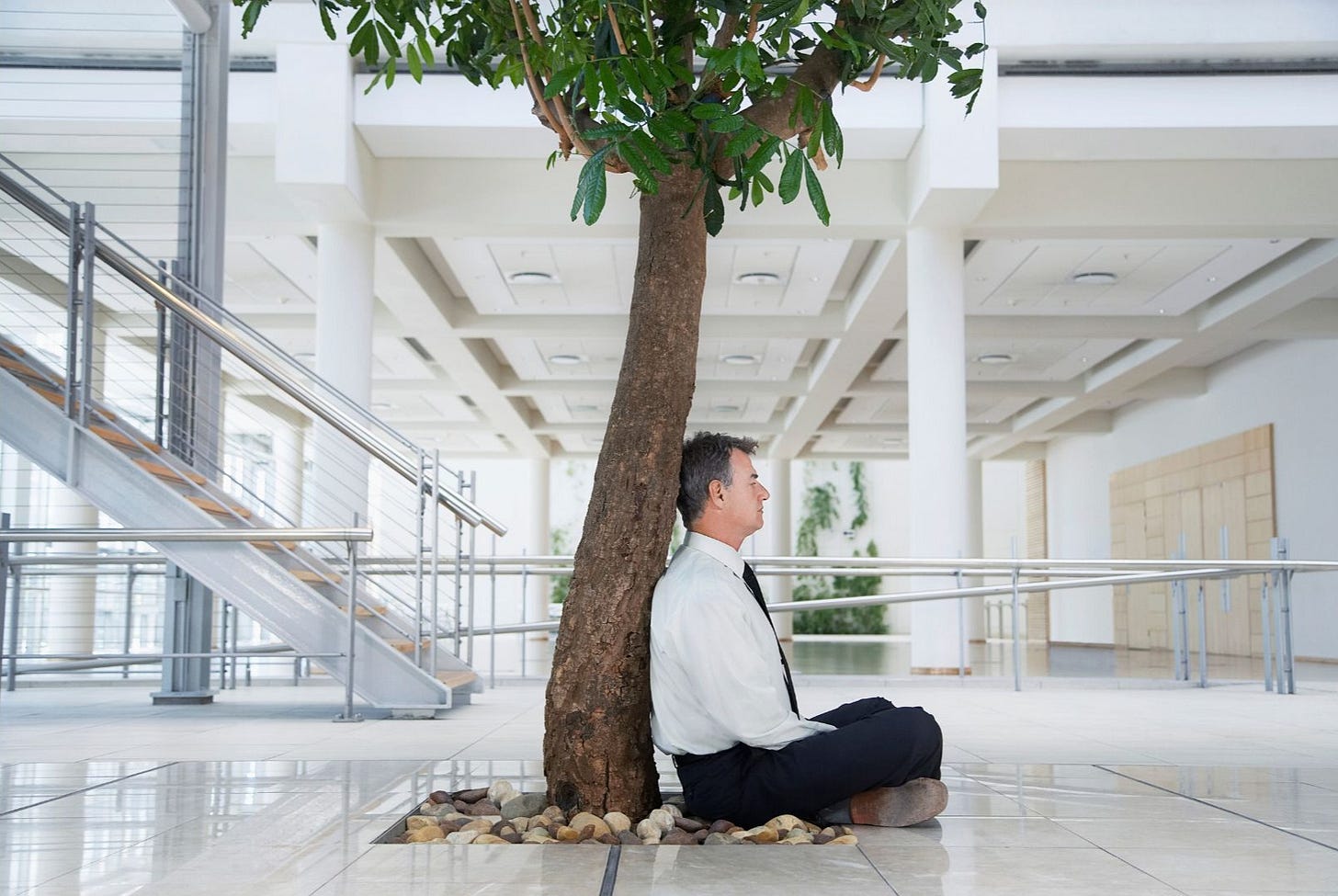The Truth About Mindfulness for Busy People
Fact: You are not doing nothing. And you need to question your "busyness".
When it comes to mindful living, there is no question that we have to practice it in order to reap the benefits.
As a Mindfulness & Wellbeing Coach, I never miss an opportunity to invite people I work with to practice mindfulness as a way of life, and this involves advising them to carve out time and space for paying attention to their present moment experience.
It's not too difficult to intellectually understand why we need mindfulness and what it could do for us, but when it comes to actually practicing it, all too often I receive responses like these:
"I'm just sooo busy. I barely have time to stop!"
"But I can't just sit and do nothing!"
"This seems like a waste of time... I need to feel productive."
And I get it. Mindfulness seems counterintuitive to modern life. When we are so used to running our life around a jam-packed schedule of non-stop activity, taking even a few minutes to put everything aside, sit still, and watch our breath can seem daunting, inconceivable, and even pointless.
So how should we approach mindful living when we find ourselves caught in the busy life syndrome?
Here are three truths that can help us reassess our response towards the practice of mindfulness:
Truth #1:
You are not doing nothing.
During a mindfulness meditation, we put aside everything else to rest in the awareness of our mind and body. We practice being with our experience and observing what happens in our internal environment from moment to moment.
From the outside, it might look like we are not doing anything. But "being" is not doing nothing. In fact, when we rest in awareness of the present moment, we are actually learning to pay attention in a specific way, and developing the skills and attitudes we need to more skilfully navigate the vicissitudes of life.
This is why it is called a "practice". And a practice, when carried out effectively, is never a waste of time.
Truth #2:
You don't have to practice for long hours.
Practicing mindfulness over extended periods of time definitely has its merits. Practitioners take months and even years off to go into meditation retreats, which offers them the most ideal conditions for deepening their skills.
But for beginners who feel the pressure of time scarcity and crazy schedules, a little bit of practice can go a really long way. What is most important in mindful living is the ability to integrate the practice seamlessly with everyday life, and to practice consistently and regularly.
I usually start people off with taking short mindful pauses ranging from one to five minutes on a daily basis - this time can be found at the start and end of each day, or as we are transitioning from one task or activity to another.
I also recommend intentionally bringing mindful awareness into everyday routine activities, such as when we are brushing our teeth, drinking our first coffee of the day, or as we walk from one place to another.
The opportunity for practice is almost endless. The real challenge comes not from finding the time to practice, but remembering to practice!
Truth #3:
You need to question your "busyness".
Why are we so busy all the time? Why do we constantly feel so pressed for time? Are we actually afraid of stopping?
I remind people that we have a real problem if we cannot even spare five minutes in a day to slow down and just pause.
It may be worth our while to look into the reasons why we have designed our life to be so busy, and why we feel the need to fill every moment of our waking hours with something to do.
We may have been encouraged to glorify multitasking and busyness in the name of productivity and efficiency. We may have been conditioned to associate our self-worth with how packed our calendars are and how many interesting "highlights" about our life we can post on social media.
And perhaps deep, deep down, we may have sensed some level of discomfort with having nothing to do except face our own thoughts and even feelings of pain, and busyness - as much as it strips us of our health and wellbeing - serves as a convenient way to distract ourselves from engaging in meaningful introspection.
---
If you would like to start living more mindfully, but feel like you are too busy for mindfulness practice, consider how the above truths can facilitate a different way of designing your way of life to incorporate more moments of mindfulness.
And if this article speaks to you, you might also wish to explore this read, where Jon Kabat-Zinn, the founder of the Mindfulness-Based Stress Reduction (MBSR) program, explains why mindfulness and busyness are entirely incompatible.
"When we set things up to make any real balance in our lives a virtual impossibility, we are evincing disloyalty to what we value most."
------



